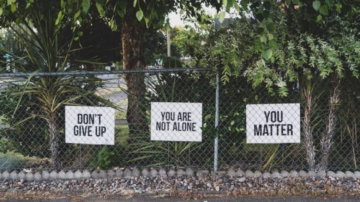4 Common Mental Health Challenges BIPOC First-Gens Face
July is BIPOC (Black, Indigenous, and People of Color) Mental Health Month

Photo: Unsplash/ Dan Meyers
Dr. Lisette Sanchez is a bilingual licensed psychologist and founder of Calathea Wellness, a virtual practice providing individual therapy in California. She has a passion for working with BIPOC folxs and first-generation professionals.
In an effort to challenge the stigma, I’m raising awareness of the challenges that my clients experience. In my work as a therapist, I specialize in working with BIPOC and first-generation individuals. A substantial portion of my work is focused on identifying and breaking generational cycles while acknowledging the oppressive systems that created the need for these practices. In this work, I have noticed common challenges that my BIPOC First-Gen clients experience. Albeit not exhaustive, the list below highlights 4 of the most common challenges I have observed.
wp_*posts
A Lack of a Sense of Belonging
The experience of feeling “out-of-place” is common in personal and professional environments. Individuals may experience challenges connecting with others due cultural differences and perceived lack of relatability. This may lead to feelings of self-doubt and isolation which further reinforces the sense of disconnection.
wp_*posts
A Struggle with Balancing Familial and Personal Obligations
There are often multiple obligations and expectations that individuals experience. Sometimes these are assigned by their role in their families i.e. eldest sibling or other times they are self-imposed i.e. “I should always answer the phone when my parent calls”. This may lead to engaging in people-pleasing behaviors and struggling with boundary setting.
wp_*posts
An Overwhelming Sense of Personal Responsibility
Being the “first” can create a sense of urgency and pressure. Individuals may feel that they are solely responsible for their family’s well-being in addition to their personal needs. This may lead to engaging in further isolating behaviors that can increase their distress.
wp_*posts
A Fear of Being a Fraud
BIPOC individuals are more likely to experience the Impostor Phenomenon, commonly referred to as Impostor Syndrome. Individuals may feel inadequate and experience self-doubt combined with fears of being discovered as a “fraud.” This may lead to underperformance, stress, and poses risks to career satisfaction and advancement.
wp_*posts
These challenges may also cause symptoms of anxiety and depression. The symptoms may present as cognitive (i.e. ruminating and constantly fearing the worst), behavioral (i.e. engaging in substance use or self-harm), and/or physical (i.e. headaches, stomach aches, and general body pain/ discomfort). These challenges may be exacerbated by environmental factors.
Environmental factors such as cultural barriers and/or acculturation have a direct impact on individuals’ experiences of the challenges described above. Cultural barriers arise when there is a cultural difference that leads to a disagreement. Cultural barriers include language, norms, values, beliefs, and communication styles. For example, someone who was raised in a culture with an indirect communication approach would be challenged by a workplace that values direct communication. In terms of acculturation, the level of adoption of the dominant culture that an individual has influences their interactions with the environment. For example, someone who has assimilated fully into the dominant culture may experience less cultural barriers and experience a stronger sense of belonging.
If you are reading this and identifying with any of the challenges or symptoms I described above, I recommend connecting with a mental health professional. A quick Consejo about finding a therapist, the most powerful predictor of success in therapy is the client-therapist relationship. This means that you would benefit from prioritizing finding someone to whom you will feel comfortable opening up. One way to do this is to read through a few directory profiles and find someone who you connect with. Once you find a few folks, you can contact them to learn more about their consultation/scheduling process.
Below are a few directories below to help you get started:
- Latinx Therapy
- Therapy for Black Girls
- Therapy for Black Men
- Asian Mental Health Collective
- Therapy Den
- https://www.inclusivetherapists.com/
- Open Path Psychotherapy Collective
Mental health stigma is often a barrier that stops individuals from seeking support. Destigmatizing asking for help increases accessibility to mental health resources. Join me in breaking the cycle of silence, asking for support, and challenging the stigma. Remember, individual healing is community healing. We are better equipped to assist others when our individual needs are met.

















